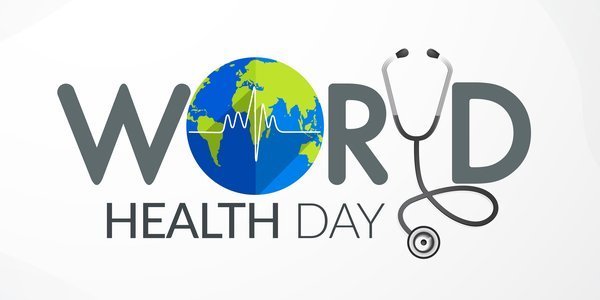EMPOWERING HEALTH
World Health Day commemorates the founding of the World Health Organization (WHO) and serves as a global call to prioritize health and well-being, Observed annually on April 7. This year’s theme, “Healthy Beginnings, Hopeful Futures,” underscores the crucial need to focus on maternal and new born health—issues at the heart of thriving societies.
The numbers speak volumes. Each year, approximately 300,000 women lose their lives due to complications during pregnancy or childbirth. Simultaneously, over 2 million new-born’s tragically die within their first month, with an additional 2 million stillborn. Behind every statistic is a story of loss and unrealized potential.
World Health Day 2025 reminds us that the health and survival of every mother and child are essential for building stronger, healthier communities. By prioritizing maternal and new born health, we can create a future where every life is valued, every family is supported, and every community has the foundation for progress.
Improving maternal and child health is a cornerstone of public health efforts and requires a comprehensive and multi-dimensional approach. It begins with ensuring accessible and equitable healthcare services for all women and children. This involves the establishment of healthcare facilities that are equipped to provide antenatal, delivery, and postnatal care, especially in rural and underserved areas.
Skilled birth attendants and healthcare professionals play a pivotal role in reducing maternal and child mortality by ensuring safe deliveries and managing complications effectively.
Education and awareness are equally vital. Pregnant women and mothers need to be informed about the importance of proper nutrition, vaccination, and regular health check-ups. Nutritional interventions, such as the provision of iron and folic acid supplements during pregnancy, can significantly improve outcomes for both mothers and their babies. Additionally, educating communities about breastfeeding practices and new born care can create lasting positive impacts on child health.
Community-based programs are an effective way to address maternal and child health challenges at the grassroots level. Initiatives such as health camps, Village Health and Nutrition Days, and outreach by community health workers help extend services to remote areas. These programs not only provide healthcare but also foster an environment where women feel supported and empowered to seek care.
In the pursuit of a healthier society, we often spotlight healthcare systems and innovations as the primary drivers of change. However, individual behaviour and lifestyle choices play an equally vital role in determining health outcomes. The symbiotic relationship between consuming healthcare services responsibly and adopting healthier habits sets the stage for long-term well-being.
From quitting smoking to embracing a balanced diet, personal decisions are the foundation of healthy living. Tobacco use, for instance, remains one of the leading causes of preventable illnesses and deaths worldwide. By choosing to quit smoking, individuals significantly reduce their risk of lung cancer, heart disease, and respiratory conditions, paving the way for a brighter future.
Nutrition and exercise are other pillars of personal health. Eating nutrient-rich foods and maintaining an active lifestyle contribute to a robust immune system, better mental health, and enhanced energy levels. Simple changes, like reducing sugar intake or adding a daily walk to your routine, can yield profound improvements over time.
While lifestyle choices lay the groundwork for better health, healthcare services provide vital support. Preventive measures such as routine check-ups, vaccinations, and screenings ensure early detection of illnesses, enabling more effective interventions. Similarly, high-quality treatments and advice from medical professionals empower individuals to make informed decisions about their health.
Consumption of healthcare, however, should be aligned with necessity and appropriateness. Overuse or underuse of services can hinder overall health outcomes and strain resources. Educating individuals on when and how to access care ensures equitable health services while encouraging personal accountability.
Improving health outcomes requires the collective effort of individuals, communities, and healthcare institutions. Governments and organizations must continue to promote policies that encourage healthier lifestyle choices and provide accessible, affordable healthcare services. Simultaneously, individuals bear the responsibility of making proactive choices to maintain their well-being.
It is through this harmony of personal behaviour and healthcare support that we can create healthier communities, reduce the prevalence of lifestyle-related illnesses, and pave the way for a brighter, healthier future.
“It is Health that is real wealth. And not the pieces of gold and silver.”(Gandhi)
(The Author is I/c HOD department of transfusion medicine and I/c Media Cell, GMC Baramulla. Feedback: [email protected])








